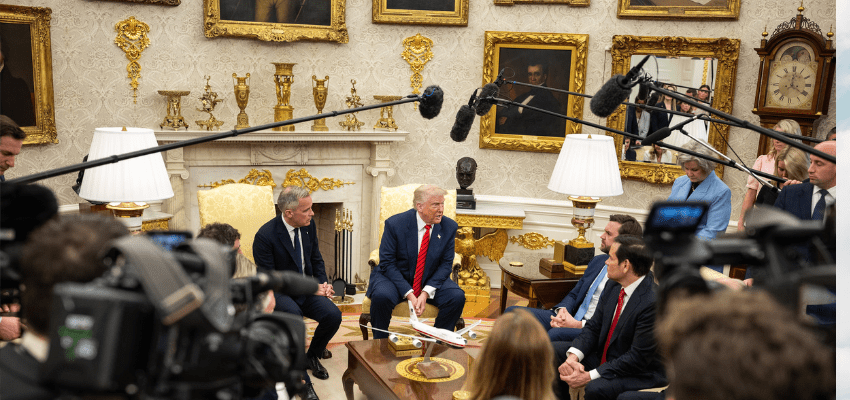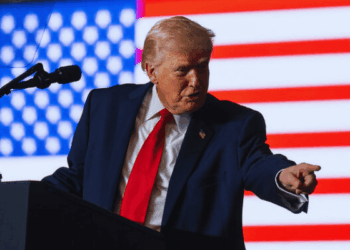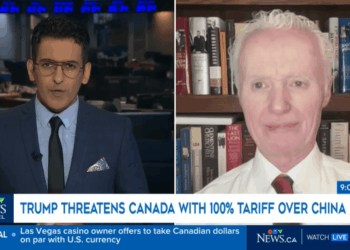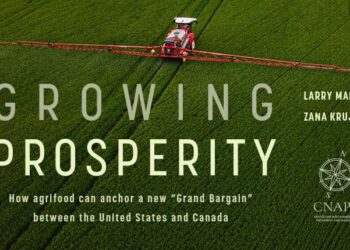This article originally appeared in The Hill.
By Casey Babb, May 8, 2025
Canada is no longer a serious country — at least not when it comes to foreign policy and moral fortitude.
Over the last several years, Ottawa has failed to articulate any meaningful strategy in response to major global events, while at the same time jeopardizing some of Canada’s most important diplomatic relations. This should set alarm bells off in Washington. If Canadian and U.S. foreign policy remain this misaligned, the consequences for America could be serious.
Consider, for instance, how Canada and the U.S. have approached India and Israel. Both New Delhi and Jerusalem are critical pillars of the global democratic architecture. Both face relentless threats from nonstate actors and revisionist regimes. Both are central to the future of democratic cooperation.
India is a key partner in pushing back against China’s Indo-Pacific dominance, while Israel is the only liberal democracy in the Middle East.
The U.S. has, for the most part, treated both Israel and India with consistency and clarity. After the Oct. 7 Hamas attacks, America affirmed Israel’s right to self-defense while engaging actively on humanitarian concerns. Likewise, when hitmen allegedly linked to the Indian government assassinated in British Columbia Hardeep Singh Nijjar, a leader in the Sikh separatist movement, Washington remained cautious and disciplined, allowing its intelligence agencies to manage the matter discreetly while protecting its strategic partnership with India.
Canada, by contrast, flinched under domestic pressure in both cases, allowing diaspora politics and electoral calculations to distort its diplomatic posture, souring relations with two of its most important allies. Prime Minister Justin Trudeau’s public accusation of Indian state involvement in Nijjar’s killing derailed already fragile ties, leading Indian Prime Minister Narendra Modi to harshly criticize Canada and shun Trudeau at the 2023 G20 summit.
A similar drift is evident in Canada’s response to Israel’s war with Hamas. Ottawa initially condemned the terrorist attacks. But in the face of rising domestic protest and activist pressure, the government’s stance became incoherent — a muddled blend of contradictory U.N. votes, hedged statements and an inability to affirm basic principles such as Israel’s right to self-defense. Canada’s new prime minister, Mark Carney, has even echoed the charge that Israel is committing genocide in Gaza.
Beyond weakening key strategic alliances, Canada has not communicated a clear vision about the world’s most pressing conflict zones. For instance, Ottawa has repeatedly capitulated to demands from the Chinese government, while remaining shockingly noncommittal when it comes to defending Taiwan from a possible Chinese invasion. Waffling like a feather in the wind, Canada was also the last member of the Five Eyes intelligence alliance to ban Chinese government-connected companies Huawei and ZTE from its 5G networks. And while Beijing continues to carry out everything from widespread foreign interference operations to espionage to executing Canadian citizens on Chinese soil, Canadian officials seem fine focusing on “positive developments” between the two countries.
On Ukraine, statements of support are clear, but material and financial assistance is lacking, and Canada has, once again, avoided any clear long-term strategy for the region. And despite a storied history of peacekeeping, demilitarizing war zones and brokering peace agreements, Ottawa’s approach to Israel’s multifront war in the Middle East is virtually nonexistent.
Going forward, Canadian leaders must rediscover that trust and reliability mean treating allies and issues not as political footballs, but as long-term partners and problems in a dangerous multipolar world. If they do not, America might have to make some tough decisions.
For instance, if Canada cannot be trusted to fully back Israel in its greatest time of need, can America count on Canada as a credible security partner? Further, if Canada fails to muster up the courage to more forcefully confront China, Washington will have no choice but to reevaluate everything from economic ties to defense cooperation with Ottawa. Canada also continues to spend a pittance not just on its own military, but on support for key allies such as Ukraine and alliances like NATO. In time, this could increase pressure for the U.S. to make up for Canada’s shortcomings — something it should not be expected to do.
All told, while the U.S. under President Trump has made a number of shocking blunders when it comes to allyship and global engagement, that does not excuse the strategic dysfunction of countries like Canada. In fact, it probably requires allies such as Canada to step up and play an outsized role to preserve the order we’ve long taken for granted under U.S. leadership.
At a time when the U.S. faces serious global challenges and the stakes are this high, a confused and reactive Canada is one liability America cannot afford.
Dr. Casey Babb is a senior fellow at the Macdonald-Laurier Institute’s Center for North American Prosperity and Security and a fellow with the Institute for National Security Studies in Tel Aviv








